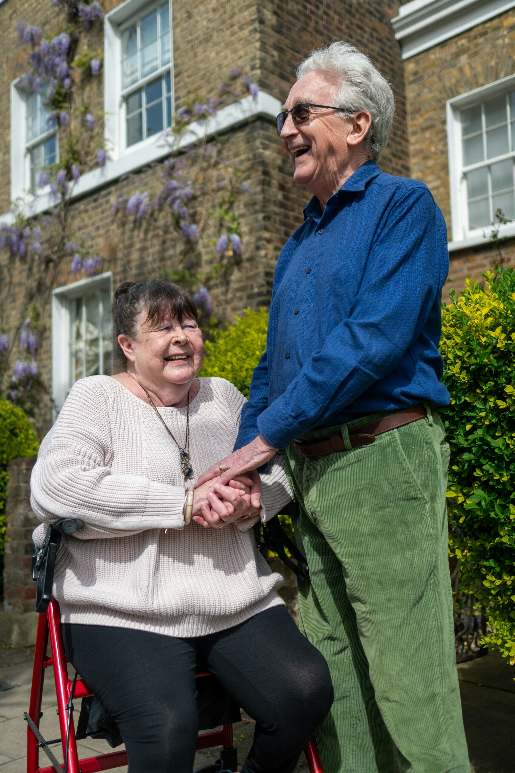Chapter 8: Sustaining Your Meditation
Practice
Reflecting on Your Meditation Journey
As you continue on your meditation journey, it's important to take time to re ect on your experiences and progress. Re ecting on your meditation practice can help you understand how it's bene ting you and where you may need to make adjustments. This chapter will guide you through the process of re ecting on your meditation journey,
Finding Serenity: A Parent's Guide to Stress Relief through Meditation
Page 36

Start by setting aside some time each day to sit quietly and re ect on your meditation practice. Make a point to note any changes in your mental, emotional, and physical well-being. Re ect on how you feel before and after meditating, as well as any challenges you may have faced during your practice.
As you re ect on your meditation journey, be kind to yourself and celebrate even the smallest victories. Remember that meditation is a journey, not a destination, and progress may not always be linear. Notice any patterns or habits that may be hindering your practice, such as negative self-talk or unrealistic expectations, and work on letting go of them.
Use this time of re ection to also
consider how your meditation
practice is bene ting your
relationships with your children,
partner, and other family members.
Notice if you feel more patient,
present, and compassionate after
meditating, and how this may be
positively impacting your interactions
with your loved ones.
Finding Serenity: A Parent's Guide to Stress Relief through Meditation
Page 37
Setting Intentions for Continued Growth and Healing It's easy to get caught up in the rush of daily life, juggling responsibilities and trying to keep up with the demands of our families. It can be easy to lose sight of our own needs and well-being. However, it is crucial to remember that in order to provide the best care for our loved ones, we must rst take care of ourselves.
One way to prioritize self-care and promote healing is by setting intentions for continued growth and well-being through meditation. By taking the time to quiet our minds and focus on our inner selves, we can cultivate a sense of peace that will not only bene t us but also positively impact those around us.
When setting intentions for meditation, it is important to be clear and speci c about what you hope to achieve. Whether it is nding inner peace, reducing stress, or gaining clarity and focus, having a clear intention will help guide your practice and keep you motivated.
Additionally, it is helpful to revisit and rea rm your intentions regularly. By taking a few moments each day to re ect on your goals and aspirations, you can stay focused and committed to your journey of growth and healing.
By setting intentions for continued growth and well-being through meditation, you are taking an important step towards nurturing your mind, body, and soul. Embrace this practice with an open heart and mind, and watch as it transforms your life and the lives of those around you.
Finding Serenity: A Parent's Guide to Stress Relief through Meditation
Page 38

Integrating Meditation into Your Life for Long-Term Stress Relief
In this subchapter, we will explore the importance of integrating meditation into your daily routine as a parent or caregiver to achieve long-term stress relief and nd serenity in your life. As we navigate the challenges of raising children, managing household responsibilities, and juggling work commitments, it is crucial to prioritize our own well-being and mental health.
Meditation has been proven to be an
e ective tool for reducing stress,
anxiety, and overwhelm. By
incorporating regular meditation
practices into your daily life, you can
cultivate a sense of inner peace and
calm that will help you navigate the
ups and downs of parenting with
more grace and ease.
One of the key bene ts of meditation
is not only its ability to help you stay
present in the moment, but to
provide a new clarity in your own
decision making while strengthening
our relationships.
Finding Serenity: A Parent's Guide to Stress Relief through Meditation
Page 39
We often nd ourselves worrying about the future or dwelling on the past, which can lead to feelings of stress, sadness and anxiety. By practicing mindful meditatio ,
n
you can learn to focus on the present moment and let go of unnecessary worries and fears.
In addition to reducing stress, meditation has been proven to foster mental clarity, emotional stability and physical well-being. Studies have shown that regular meditation practices can lower blood pressure, improve sleep quality, and boost immune function. By taking care of your own mental and physical health, you will be better equipped to handle the demands of parenting and caregiving.
By making meditation a priority in your life, you can experience long-term stress relief and nd serenity in the midst of parenting and caregiving challenges.
Remember that self-care is not sel sh – it is essential for your well-being and the well-being of those you care for.





